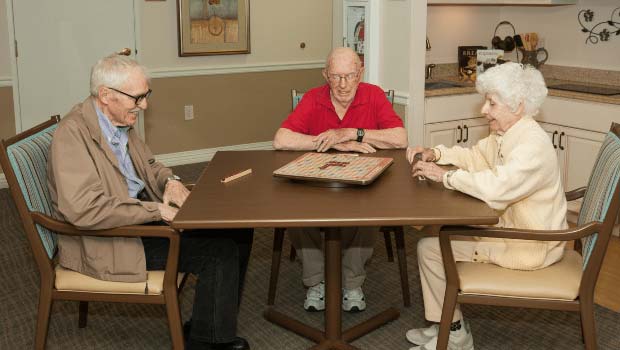People require social connection to survive. As people age, the need for community remains as strong as it always has been. Older adults need to cultivate meaningful relationships and form strong bonds with the people around them to preserve their overall health.
For older adults, there are several benefits to forming lasting friendships aside from the chance to enjoy the company of another person. Strong friendships in a person’s later years have a major influence over both their mental and physical health. For those who have older loved ones, here are some of the reasons why positive socialization is crucial for their wellbeing.
Reduced Stress
Socialization becomes more challenging as people age. Some examples of things that can hinder a person’s ability to socialize include mobility issues and a lack of a strong support system. Whatever the cause may be, older adults living in isolation have a greater risk of stress-induced physical and mental health problems.
Older adults who have consistent social interactions in a thriving community, such as those offered in memory care centers, have an overall better well being than those who do not. Those who can foster friendships have a lower risk of developing serious health issues like diabetes, heart disease, and depression.
Lower Risk of Depression
As people age and socialization becomes more difficult, older adults often report feelings of loneliness. Whether the reason is chronic illness or the loss of friends and family, isolation is a common occurrence for people as they age. As many as 28% of aging adults have reported feeling lonely, which is a shockingly high number.
Isolation and feelings of loneliness often lead to older adults developing depression and experiencing premature mental decline. Consistent and positive social interactions, such as dining with others or playing board games, helps prevent depression in people as they age. Aging adults who have strong friendships report greater feelings of happiness that help to alleviate or even prevent the damaging effects of depression and loneliness.
Fostering a Sense of Belonging
Most people spend their lives seeking a sense of belonging within a community. The need to find a place to belong does not diminish as people age, but the physical challenges of doing so may make it more difficult. Fostering a sense of community helps reduce the risk of experiencing poor mental and physical health.
Older adults in isolation will see a vast improvement in their lives after being given the chance to be a part of something larger than themselves. As a result, they often see improvements in their cognitive abilities and overall health.
Getting More Exercise
One of the strongest indicators of a person’s health is how often they exercise, and that is also true for older adults. Unfortunately, as people age, keeping up with exercise can be more challenging. Older adults in isolation are less likely to have opportunities to exercise and may even lose the motivation to do so.
Getting exercise is critical for preserving the health and wellbeing of people as they age. Research has shown that those who have strong friendships and are part of a supportive community are more likely to exercise frequently.
Higher Cognitive Function
Medical doctors recommend a variety of activities to keep a person’s brain sharp. Things like puzzles and playing music can go a long way in preventing cognitive issues later in life. However, even small things like experiencing consistent positive social interaction can have a positive impact on the cognitive function of older adults.
Socializing helps train a person’s brain and offer stimulating mental exercises during things as simple as casual conversation. Positive social interactions also have a beneficial effect on memory retention, as well as helping aging adults feel motivated to learn and engage.
Lower Risk of Mental Decline
It is incredibly common for people to experience mental decline as they age. Memory retention becomes difficult, and some people even develop illnesses like Alzheimer’s Disease. However, there are ways to keep these issues to a minimum as a person ages.
Studies have shown that positive socialization in a rich community lowers the risk of mental decline. Aging adults who are considered “mentally sharp” by medical professionals often have built strong friendships and bonds with those around them.
Prioritizing Socialization for Older Adults
It is common for caretakers to overlook the importance of socialization in older adults. However, socialization has a number of benefits that can improve a person’s quality of life. Strong bonds and a rich community are vital parts of enriching life for aging adults, so prioritizing them is crucial for an individual’s overall wellbeing.
Summerfield of Stockton
Summerfield of Stockton is a premier assisted living community in Stockton, CA. Summerfield of Stockton prioritizes all aspects of care for those in their community, proudly offering five-star amenities that are rarely seen elsewhere.

